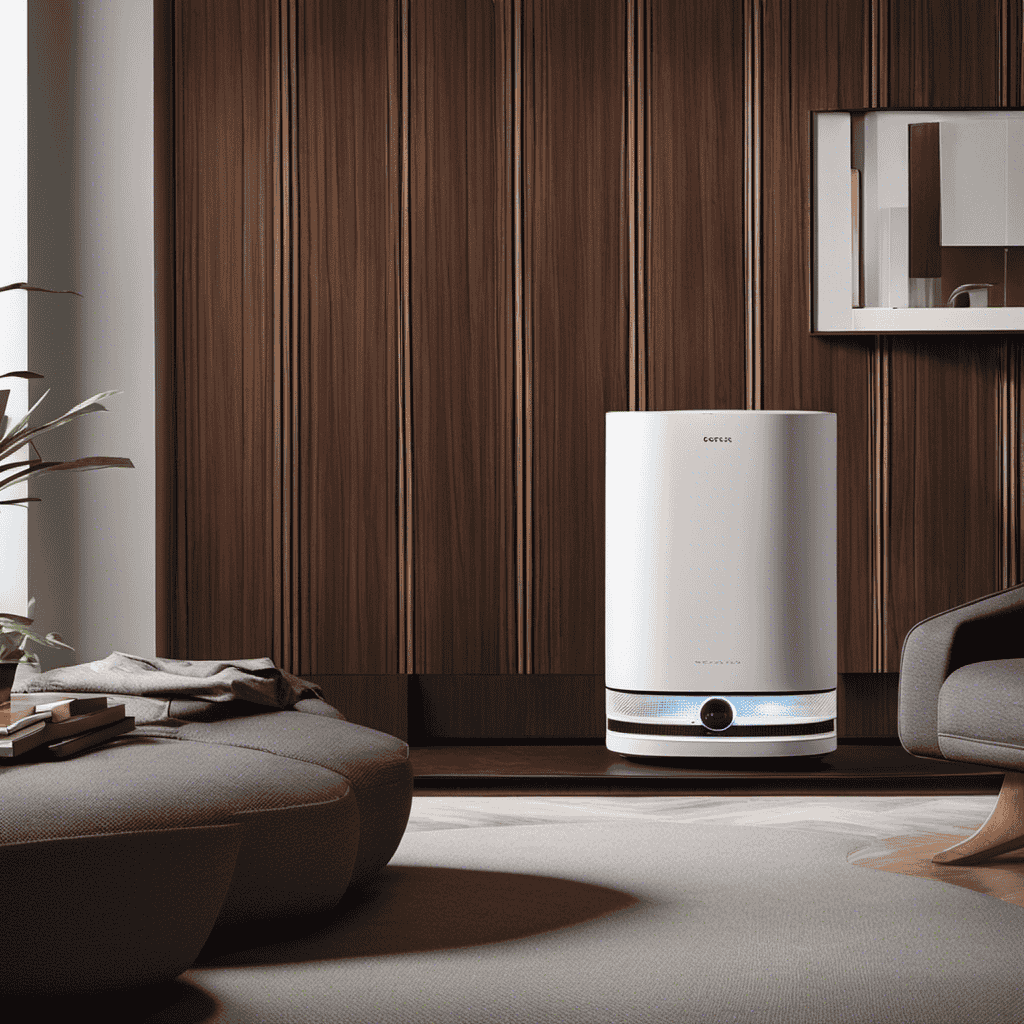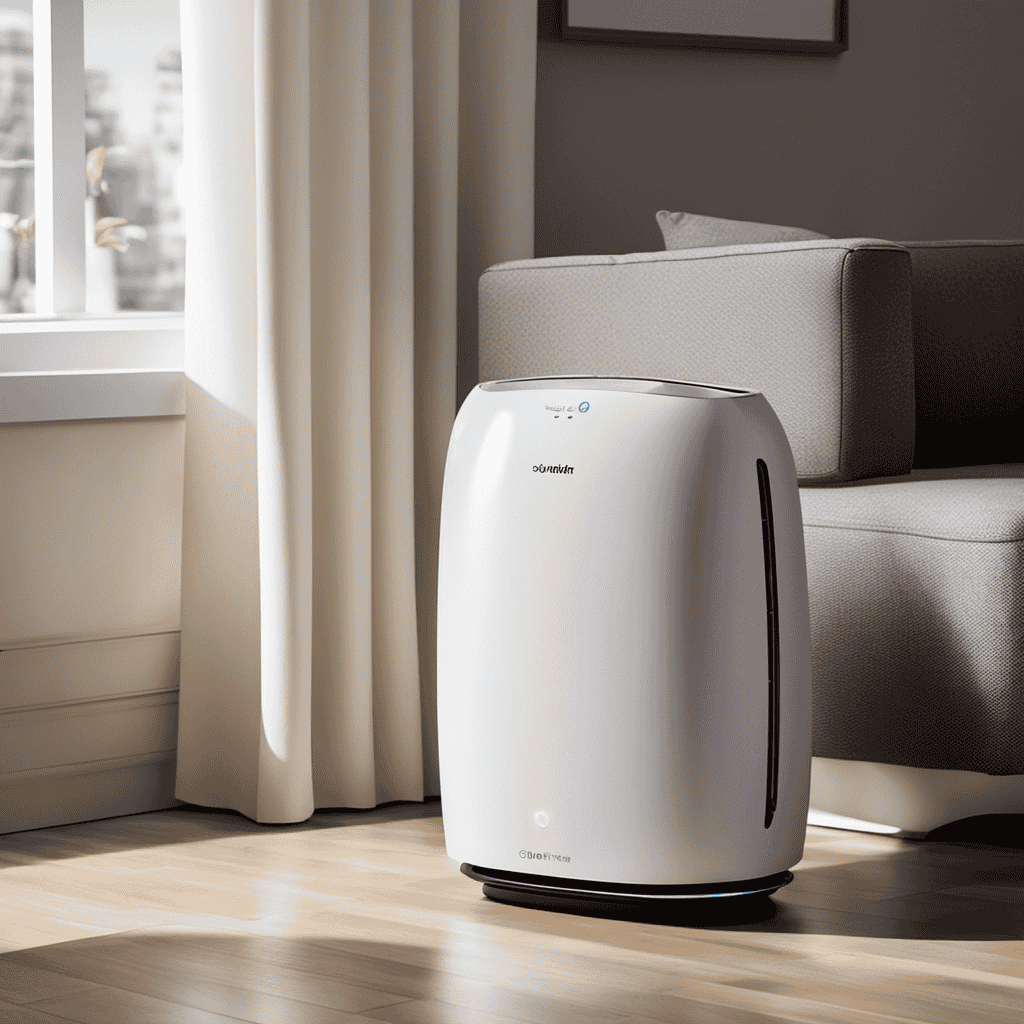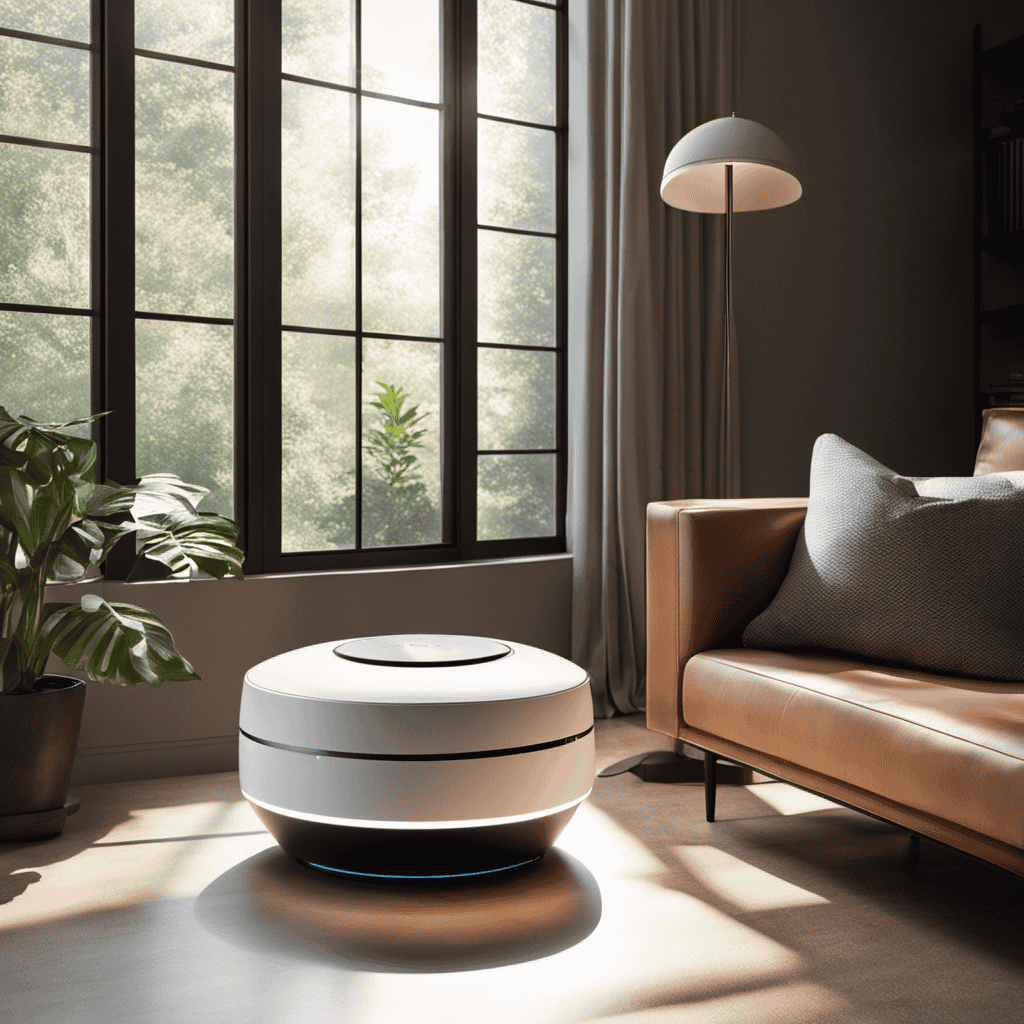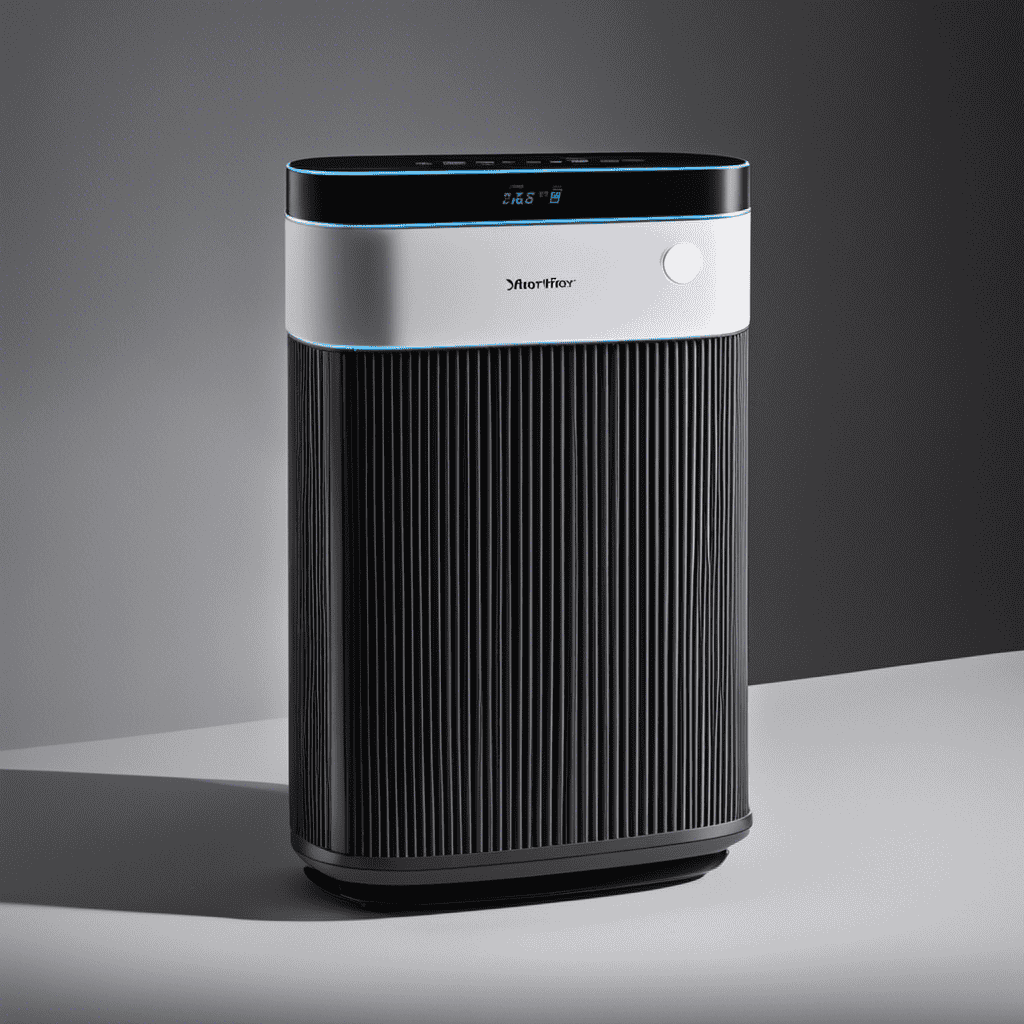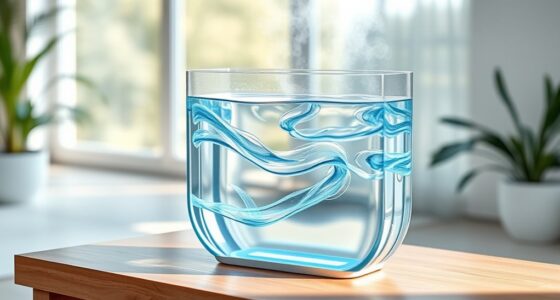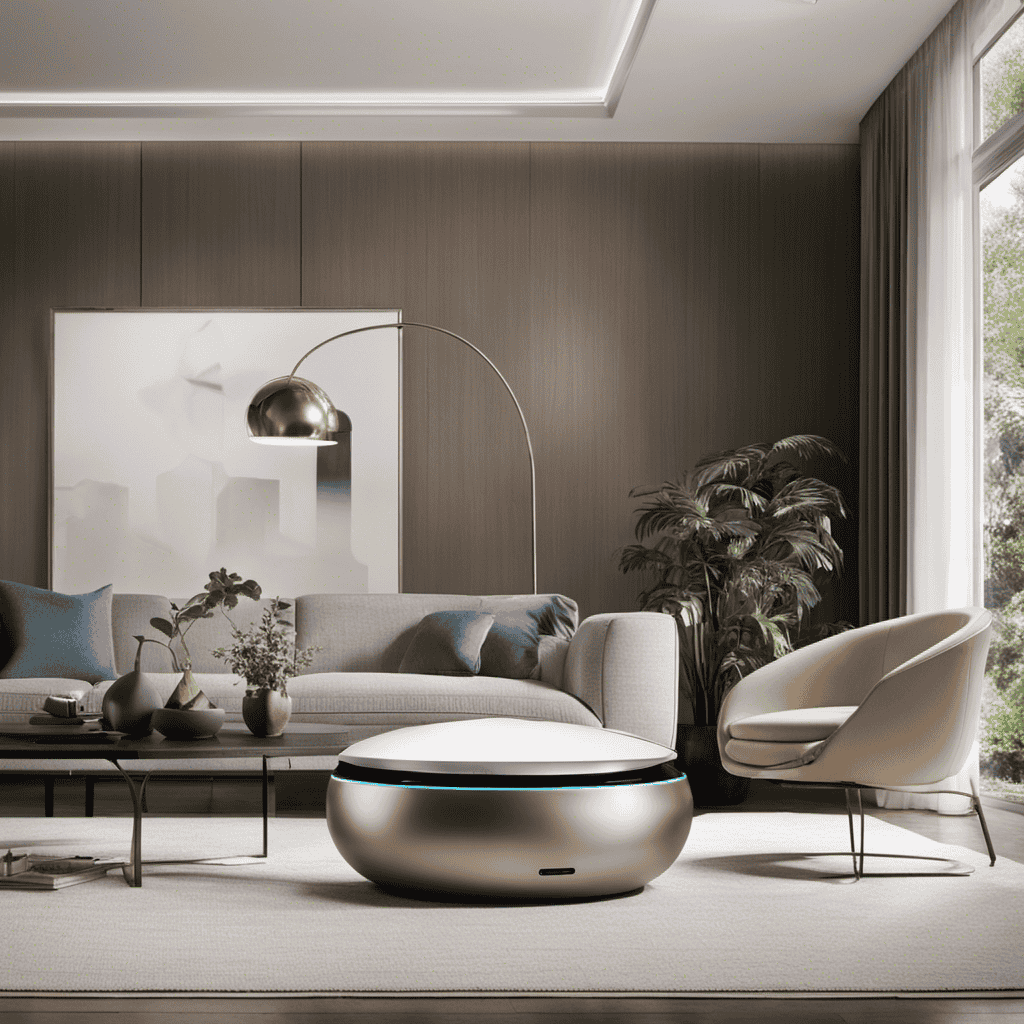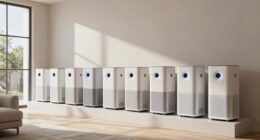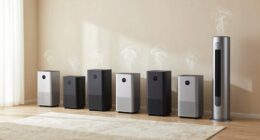Hello!
Ever wondered about the distinction between an air purifier and an air diffuser? Well, let me break it down for you.
These two devices may seem similar at first glance, but they serve different purposes and operate in unique ways.
In this article, we’ll delve into the purpose, function, and health benefits of both, explore the various types available, and help you choose the right option for your needs.
So, let’s get started and clear the air on this topic!
Key Takeaways
- Air purifiers improve indoor air quality by removing airborne particles, while air diffusers primarily disperse essential oils for aromatherapy purposes.
- Air purifiers use filters and advanced technology to trap and remove pollutants, while air diffusers use fans or ultrasonic vibrations to disperse fragrance into the air.
- Air purifiers offer health benefits by reducing respiratory issues, allergies, and unpleasant odors, while air diffusers create a pleasant atmosphere, relieve stress, and improve sleep quality.
- When choosing between an air purifier and an air diffuser, consider the purpose, area size, compatibility with essential oils, and maintenance requirements.
Purpose and Function
If you’re wondering about the purpose and function of an air purifier and an air diffuser, let’s break it down for you.
An air purifier is designed to improve indoor air quality by removing airborne particles, such as dust, pollen, pet dander, and smoke. It uses a combination of filters to trap these particles and release clean air back into the room.
On the other hand, an air diffuser is primarily used for aromatherapy purposes. It disperses essential oils into the air, providing a pleasant fragrance and potential health benefits. Unlike an air purifier, an air diffuser does not directly clean the air, but rather enhances the atmosphere with soothing scents.
Mechanism of Action
To understand how they work, you can think of an air purifier as a device that cleans the air by trapping pollutants, while an air diffuser is more focused on adding fragrance or essential oils to the air.
Air purifiers use advanced technology to remove contaminants from the air, such as dust, pollen, pet dander, and smoke particles. They typically employ a combination of filters, such as HEPA filters, activated carbon filters, and UV lights, to effectively purify the air.
On the other hand, air diffusers work by dispersing essential oils or fragrances into the air, creating a pleasant and soothing atmosphere. They use a mechanism that involves a small fan or ultrasonic vibrations to break down the essential oils into fine particles that can be released into the air.
Transitioning into the next section, these mechanisms have different implications for the health benefits they provide.
Health Benefits
Air purifiers and air diffusers offer distinct health benefits to users. When it comes to improving air quality, both devices play important roles. Here are four key benefits of using air purifiers and air diffusers:
-
Air purifiers remove harmful pollutants from the air, such as allergens, dust, and pet dander. This helps to reduce respiratory issues and allergies, promoting better overall health.
-
Air diffusers, on the other hand, utilize essential oils to create a pleasant and calming atmosphere. Aromatherapy has been shown to relieve stress, improve sleep quality, and enhance mood.
-
Air purifiers can also eliminate unpleasant odors, such as smoke or cooking smells, creating a fresh and clean environment.
-
Air diffusers not only provide a delightful fragrance but also help to humidify the air, which can alleviate dryness and respiratory discomfort.
Types and Variations
When choosing between types and variations of these devices, you’ll want to consider factors such as size, functionality, and maintenance requirements.
Air purifiers come in different types, including HEPA filters, activated carbon filters, and UV-C technology. HEPA filters are highly effective in removing airborne particles like dust, pollen, and pet dander. Activated carbon filters are great at eliminating odors and chemicals. UV-C technology uses ultraviolet light to kill germs and bacteria.
On the other hand, air diffusers also have various types and features. Some use ultrasonic technology to create a fine mist of water and essential oils, while others use heat to disperse fragrance. It’s important to choose the right type of air diffuser based on your preferences and needs. Make sure to consider factors such as the size of the room you want to use it in and the maintenance requirements of the device.
Choosing the Right Option
Considering factors like size, functionality, and maintenance requirements is crucial when selecting the right option. To help you make an informed decision, here are four important factors to consider when choosing between an air purifier and an air diffuser:
-
Purpose: Determine whether you primarily want to improve air quality or create a pleasant aroma in your space. Air purifiers are designed to remove pollutants and allergens from the air, while air diffusers disperse essential oils for aromatherapy purposes.
-
Size: Assess the size of the area you want to treat. Air purifiers are available in various sizes, suitable for small rooms or larger spaces. Air diffusers are usually compact and can be placed in any room.
-
Essential Oil Compatibility: If you opt for an air diffuser, ensure that it is compatible with essential oils. Some diffusers have specific requirements regarding the type and viscosity of oils they can disperse.
-
Maintenance: Consider the maintenance requirements of each option. Air purifiers typically require filter replacements and regular cleaning, while air diffusers may need occasional cleaning and refilling of essential oils.
Frequently Asked Questions
Can an Air Purifier Eliminate All Types of Odors in a Room?
Yes, an air purifier can eliminate all types of odors in a room. It uses filters to trap and remove particles, including odors, from the air, improving overall air quality and creating a fresher environment.
How Often Should I Clean or Replace the Filters in an Air Purifier?
I should clean or replace the filters in my air purifier regularly for optimal performance. It is necessary to do so in order to maintain the effectiveness of the purifier in removing pollutants from the air.
Can an Air Diffuser Improve the Air Quality in a Room Like an Air Purifier Does?
Yes, an air diffuser can improve air quality by releasing essential oils into the air, creating a pleasant aroma. However, it does not have the same effectiveness as an air purifier in removing pollutants and allergens.
Are There Any Potential Side Effects or Risks Associated With Using an Air Purifier?
There are potential side effects and risks associated with using an air purifier. It is important to consider factors such as ozone production, filter maintenance, and allergen sensitivity when using this type of device.
Can I Use an Air Diffuser and an Air Purifier in the Same Room Simultaneously?
Yes, you can use an air diffuser and an air purifier together in the same room. Combining their powers creates a harmonious atmosphere, with the diffuser providing pleasant scents and the purifier ensuring clean and fresh air. The benefits are twofold.
Is an Allergen Remover Essentially the Same as an Air Diffuser?
An allergen remover and an air diffuser serve different purposes, despite the confusion. The main difference between an air purifier and allergen remover lies in their function: the former is designed to remove a wide range of airborne contaminants, while the latter is specifically targeted at eliminating allergens and irritants from the air.
Conclusion
In conclusion, after exploring the purpose and function, mechanism of action, health benefits, types and variations, and choosing the right option, it is clear that understanding the difference between an air purifier and an air diffuser is crucial for ensuring clean and fresh air in our surroundings.
While an air purifier focuses on removing contaminants and improving indoor air quality, an air diffuser is primarily used for spreading pleasant scents and creating a calming atmosphere.
Both options have their own advantages and it is important to choose the right one based on individual needs and preferences.
